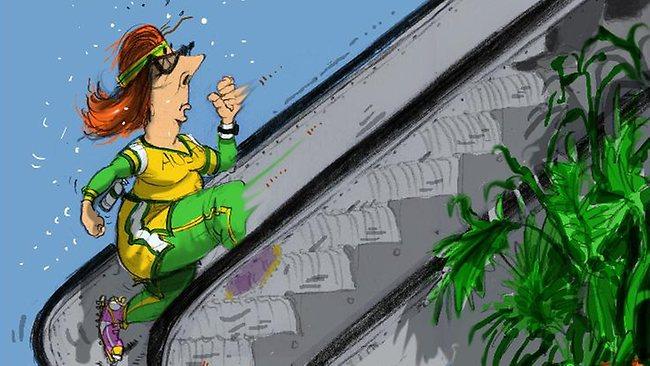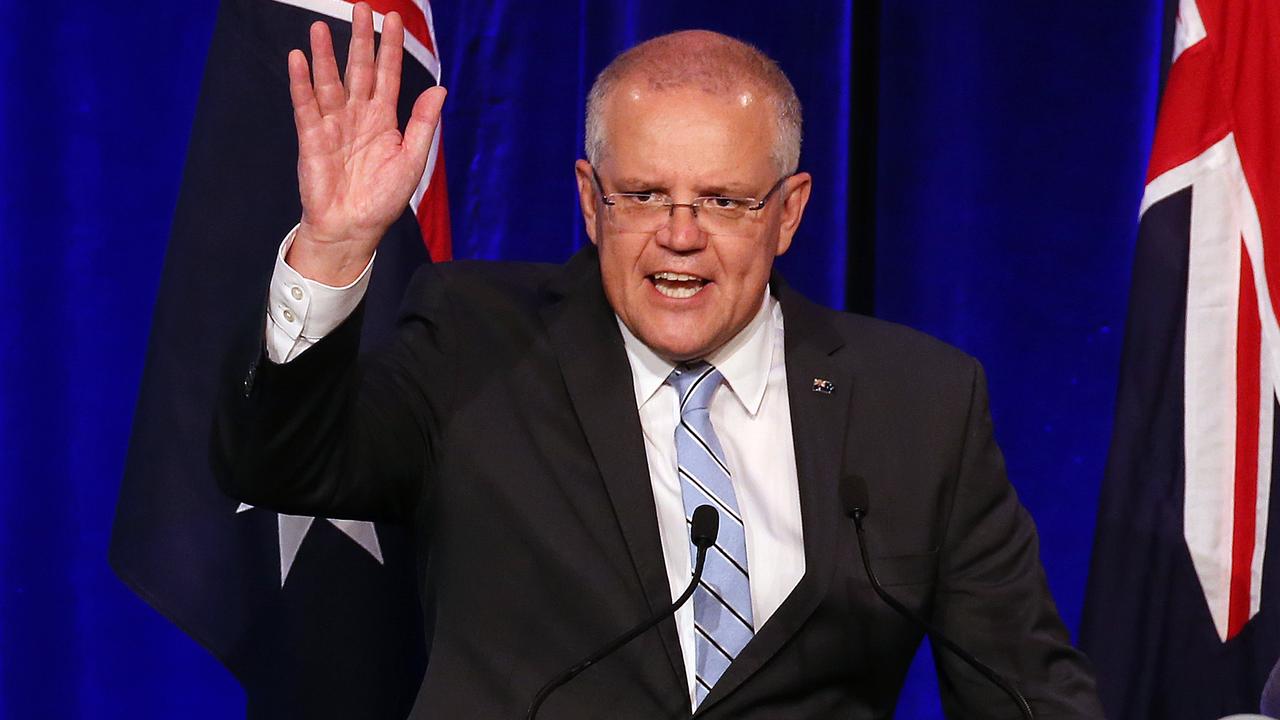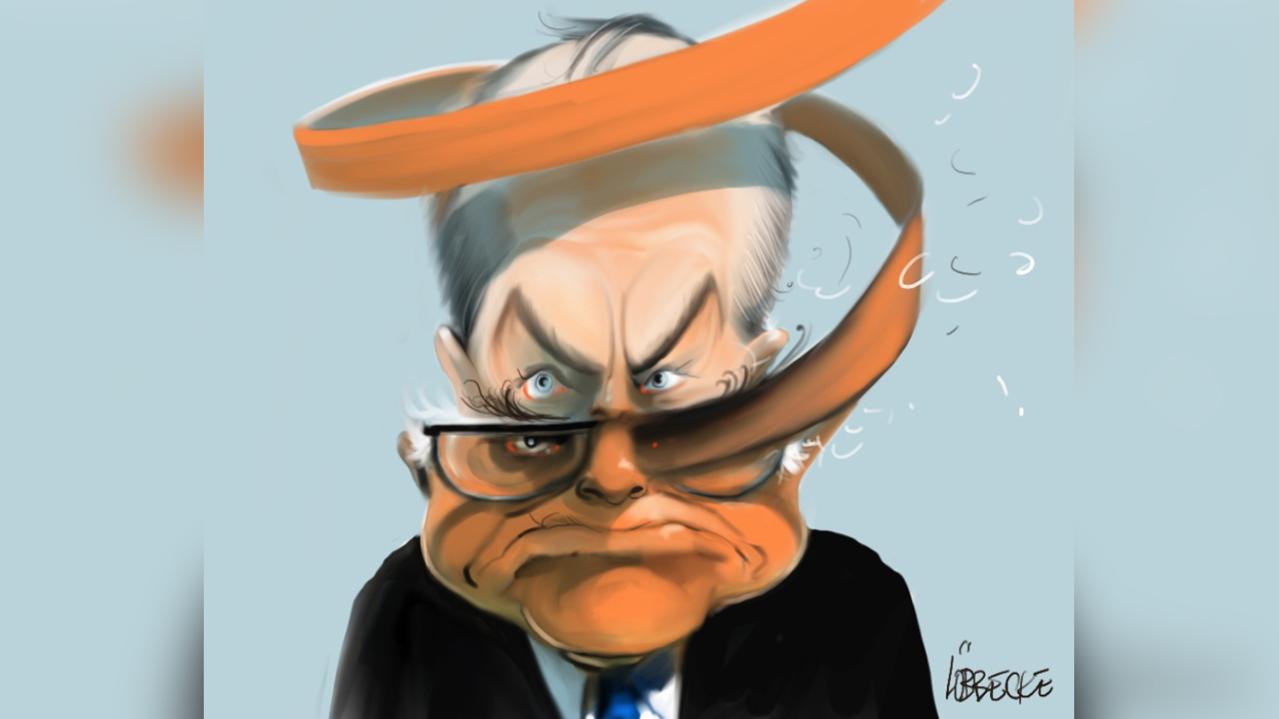Julia Gillard risks her legacy by not ceding to Kevin Rudd

A LOT has been made of the "toughness" of Julia Gillard during this parliamentary term. Toughness is one thing, but good leaders also must be realists and put the party first. If Gillard fails in this respect, and if her toughness gets in the way of doing what is right by the Labor Party, history will judge her as nothing more than self-serving and stubborn, assuming that her electoral performance later this year doesn't live up to her fighting qualities.
Of course the PM is tough; she is the leader of a major political party and in the modern media age Gillard has endured significant (often pointed) criticisms. But guess what? That is par for the course. Leading a major party is a tough business, and Gillard has shown no more toughness than a multitude of modern political leaders, some of whom continue to serve.
Labelling Gillard "tough" implies it is a unique quality among leaders. Give me a break.
Kevin Rudd is tough. How could he not be, continuing in politics after what was done to him during his first term as prime minister (a historical first), or after what was said in February last year when he resigned as foreign minister? (According to Wayne Swan, Rudd has never had "Labor values".)
Political observers collectively agreed it was a stoic effort by Rudd to turn up to question time and sit on the backbench on the day he was deposed as Labor leader. Sitting there must have been a humiliating experience, to say the least.
John Howard showed toughness in spades, enduring barbs, pushing for unpopular policy development and by surviving in politics for as long as he did. He was unceremoniously dumped as leader in 1989, in a coup he did not see coming, yet he fought on.
Howard contested multiple leadership ballots before securing the prime ministership in a landslide victory in 1996. After that, insults became even more personalised against Howard. He was called everything from a fascist to a war criminal, including by some of the nation's so-called leading "intellectuals". Yet Howard served nearly 12 years as PM, including successfully fighting a GST election when no one thought doing so was possible.
No one can tell me Paul Keating wasn't a tough politician, rolling Bob Hawke (Labor's longest serving PM) when it needed to happen if Labor was to win the 1993 election. Before that, as treasurer, Keating reformed the Australian economy like no other, in ways that were anathema to Labor's traditional constituency.
There have been tough state leaders in modern times too. Bob Carr led Labor for seven long years after it was heavily defeated by Nick Greiner in 1988. He went on to be NSW premier for a decade, eventually leaving on his own terms. And in the context of the Independent Commission Against Corruption hearings today, Carr showed strength in insisting Eddie Obeid be stood down from his cabinet after the 2003 election victory, despite factional pressure to retain him.
Jeff Kennett was better known as the former opposition leader, rather than premier in Victoria, after winning the 1992 state election. He first became opposition leader, wait for it, a full decade before becoming premier. Kennett lost two elections (in 1985 and 1988) and was dumped in 1989 before returning to the Liberal leadership in 1991. As premier he pursued unpopular reforms, especially in industrial relations and electricity privatisation.
And guess what? Tony Abbott is tough too. Disregarded as a serious leadership candidate after the 2007 federal election, he rebuilt himself to surprise everyone with his competitiveness at the 2010 election. Now labelled a misogynist by the PM and others, the Opposition Leader is well on his way to being demonised by the Left the way Howard was. You can bet that he will take it in his stride.
The point is, toughness is a prerequisite for leading a political party. Those who don't have it never get there (no point hurting their feelings by naming them in this article) or they implode, get rolled and quickly retreat from centre stage.
Only the tough survive; only the impressive thrive. All of those mentioned above have achieved the former; fewer achieve the latter. When it comes to true leadership, toughness can get in the way of greatness when it morphs into stubbornness - especially when it becomes self-serving. And it doesn't always equate with quality governing or competent reforming.
Howard became stubborn in the final years of his prime ministership. He was upset by Peter Costello's reaction to leadership stories, so he stayed in office when he should have managed a handover. At the very end, Howard shifted from his rhetorical construct that he would serve the Liberal Party so long as it wanted him. When Howard's cabinet told him to go, he sought the advice of his family before staying.
Gillard is facing her Howard moment in the coming weeks and months, but the consequences of her decision are more significant. If Labor loses the next election, not only will a large number of MPs lose their jobs but Gillard's policy legacy will be unpicked, for Abbott has pledged to repeal the carbon and mining taxes.
With a growing number of Labor MPs coming to the conclusion that they need Rudd if they are to be competitive at the election, Gillard is in the awkward position where she needs Rudd to save a legacy she hopes will stay with her long after her career in politics ends.
The polls have been consistent for years now: Gillard will lead Labor to a sizeable defeat this year. Rudd is more popular and has a chance of beating Abbott. Gillard supporters, attempting to paint Rudd's popularity as something that would fade soon after his return to the prime ministership, forget three things: Rudd's popularity has been enduring; it withstood the character assassinations by spiteful colleagues last February; and, according to Newspoll, Labor's two-party vote was 52 per cent on the day Rudd was removed.
The equation is simple: Gillard should make way for Rudd's return. All that remains is to see if her toughness gets in the way of her duty to the ALP. The odds are that it will, increasing the chances that her legacy within the party will diminish through time.
The moment when Gillard's still honourable toughness morphs into self-serving stubbornness - in the eyes of the public and most of her colleagues - isn't far away. Standing up to a (significant) minority in the party room is one thing. But when that minority becomes a majority, as it surely will as defeat edges closer, toughness will turn into stubbornness; there is nothing more certain. In reality it probably already has.
Rudd has made it clear that he won't challenge and I, for one, believe him. But there are many ways to skin a cat: Gillard could call a spill, thus vacating the leadership. A third candidate could act as a stalking horse, allowing Rudd to enter a leadership race without formally challenging. Powerbrokers could approach Gillard to stand aside. But ultimately the most dignified decision for Gillard would be to pre-empt all of these scenarios and stand aside before being pushed.
Nothing is tougher than giving up the prime ministership, which is why so few leaders throughout history have done so voluntarily.
Peter van Onselen is a professor at the University of Western Australia.


